How ‘The Vagina Monologues’ Came To Be In Japan … And Why The Play Is So Relevant Now
Women in Japan—both native and from abroad—are ready to shout
The international play-turned-movement is taking Osaka by storm.
The Vagina Monologues, a live show that quickly turned into a social movement, is now a worldwide hit. Since its initial Off-Broadway run in 1996, it has been performed in over 140 countries in scores of languages. It’s emboldened many who identify as female to open up about their experiences with shame and sexual assault. It was also the catalyst that started V-Day, an international organization dedicated to ending violence against women and girls. Today, all proceeds made from a production of The Vagina Monologues go to a charity fighting against such injustice.
The empowering play, which is based on actual interviews with over 200 women, has quite literally become a movement.
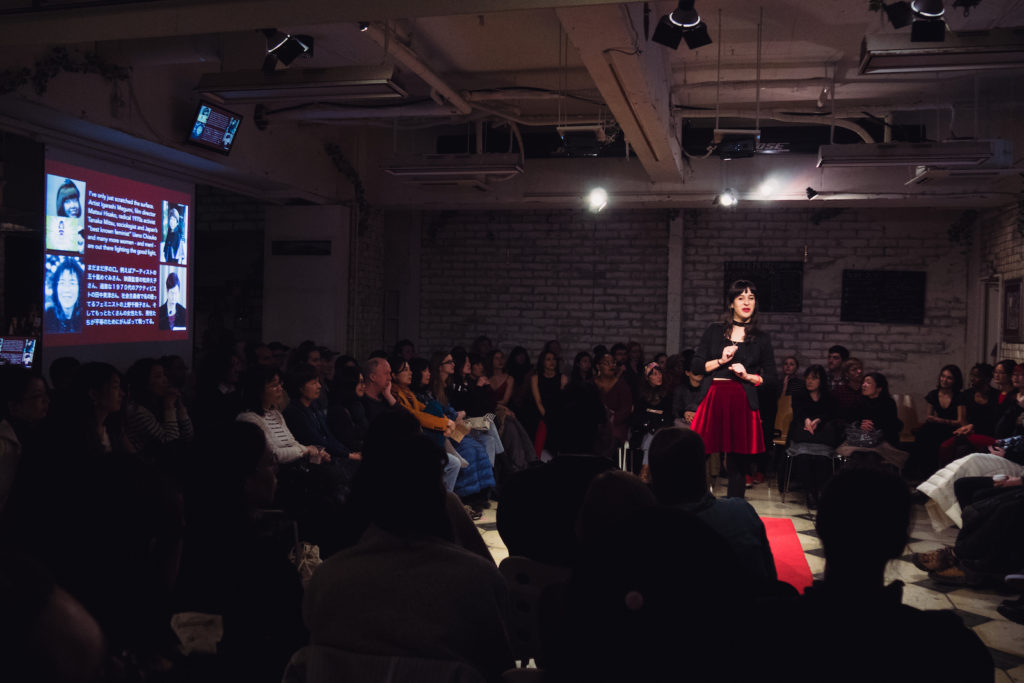 © Photo by Yoke Mun Lim
© Photo by Yoke Mun LimAt The Vagina Monologues' 2018 performance in Osaka, Japan.
Not everyone sees it this way, however. The play has received backlash abroad recently for being anti-feminist and transphobic. Many of the criticisms are valid — at the very least, the play is quite dated. Even Eve Ensler, the play’s author and founder of V-Day, said The Vagina Monologues is imperfect.
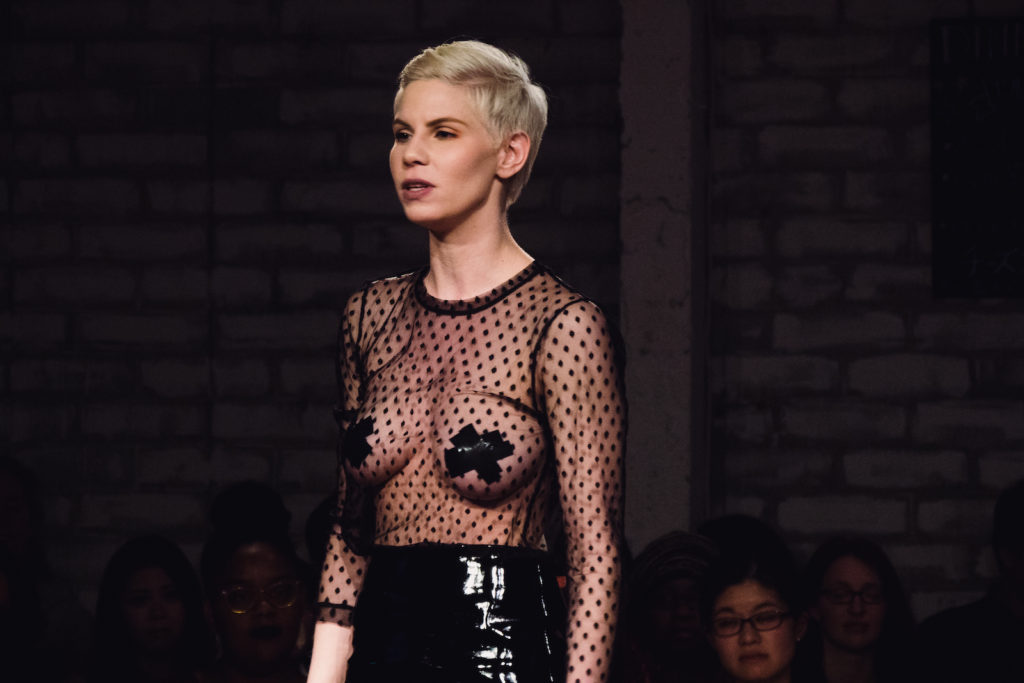 © Photo by Yoke Mun Lim
© Photo by Yoke Mun LimA scene of the 2018 The Vagina Monologues play in Osaka, Japan.
In Japan, however, the message seems radical. Women talking openly onstage about the anger they feel towards tampons (“a dry wad of f***ing cotton”) or the gory but beautiful details of childbirth (“the contractions made her crawl on all fours”), is practically unheard of. There’s even a scene where a woman triumphantly chants “Manko! Manko!” onstage, which is equivalent to shouting the English word “C*nt!” In a country rampant with sexism and assault but where such issues are normally kept silent, many women—both native and from abroad—are ready to shout.
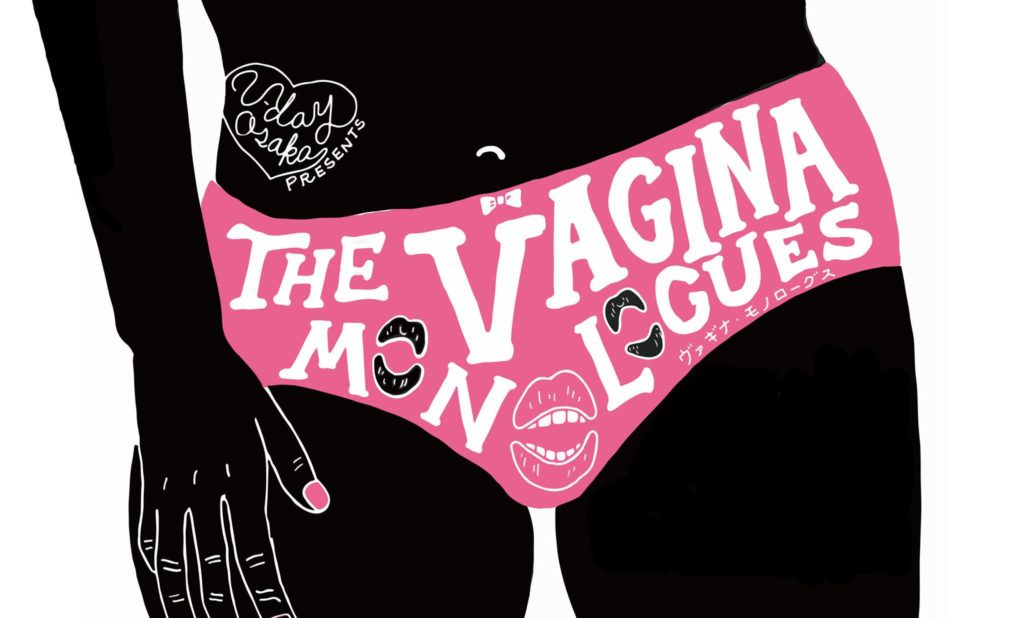 © Photo by stainperfect
© Photo by stainperfect
I’ve experienced this first hand.
A few women and I started “V-Day Osaka,” the first Japanese branch of the international organization, three years ago. We staged an ambitious bilingual production of The Vagina Monologues—half the monologues were in Japanese and the other half in English, with subtitles in both languages throughout. We assumed at most 50 people would come, mainly our friends. But, to our surprise, we completely sold out at a venue that seats 100. We opened the dress rehearsal up to the public so more people could come—that sold out too. The play was well received and we raised over ¥350,000 for a shelter for survivors of domestic abuse. We were floored.
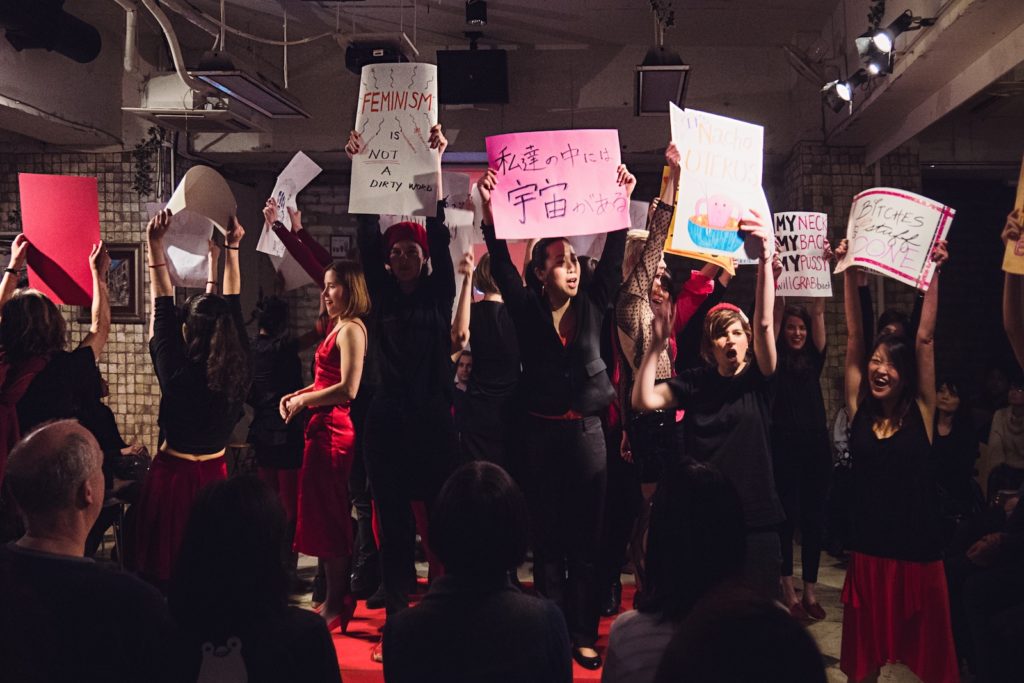 © Photo by Yoke Mun Lim
© Photo by Yoke Mun LimWomen of all nationalities gathered at The Vagina Monologues' 2018 bilingual performance in Osaka, Japan.
Since then, a little “vagina community” (as they say in the play) has formed in Osaka. Besides The Vagina Monologues, we host other events throughout the year. One is “Our Monologues,” an annual open mic night. Anyone regardless of gender identity can take the stage and talk about their relevant experiences.
Blood, sweat, and tears—bodily fluids not normally considered “ladylike”—go into the making of the play annually, and it is so worth it.
Another is Riot Reads, our monthly-ish book club. Members read and discuss books (alternatively fiction and non-fiction) related to the female experience and then talk about how to apply the lessons from the text to our community. Each event has drawn a humbling amount of support and provided eye-opening perspectives from people of all ages, races, and genders.
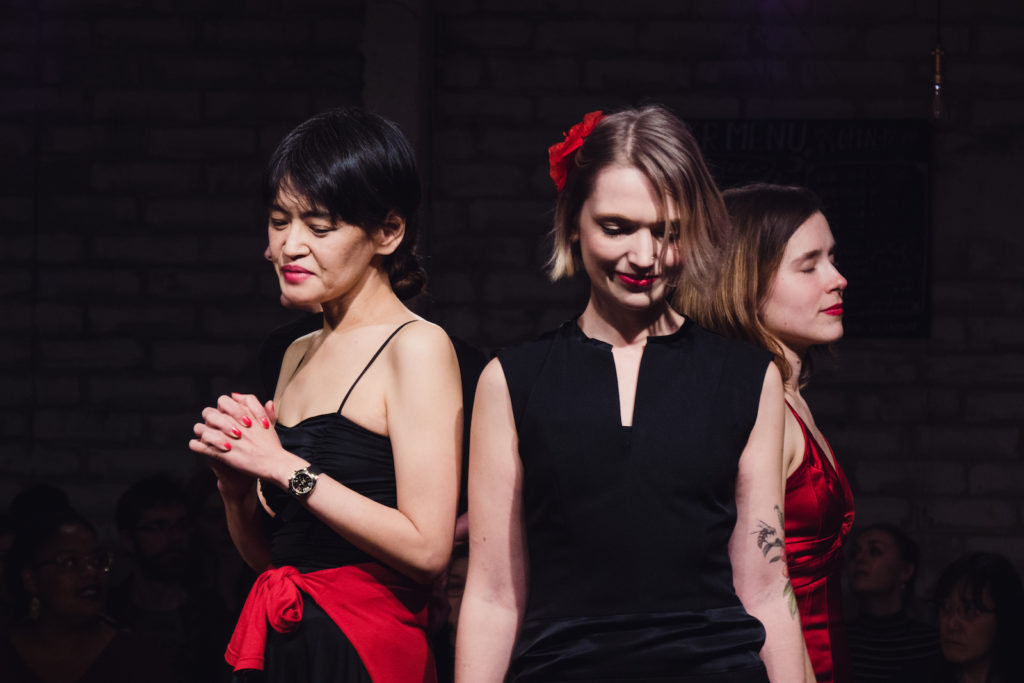 © Photo by Yoke Mun Lim
© Photo by Yoke Mun Lim
V-Day Osaka is now in its third year and the play is projected to sell out once again. Blood, sweat, and tears—bodily fluids not normally considered “ladylike”—go into the making of the play annually, and it is so worth it. Women (and even a few men!) from different backgrounds, age groups, and nationalities come together every year. Though it’s true The Monologues hasn’t quite had the impact here it has in other places—the play was initially written in English for an American audience, so there are certain cultural barriers built in—this hasn’t stopped Japanese productions of the play from making it their own.
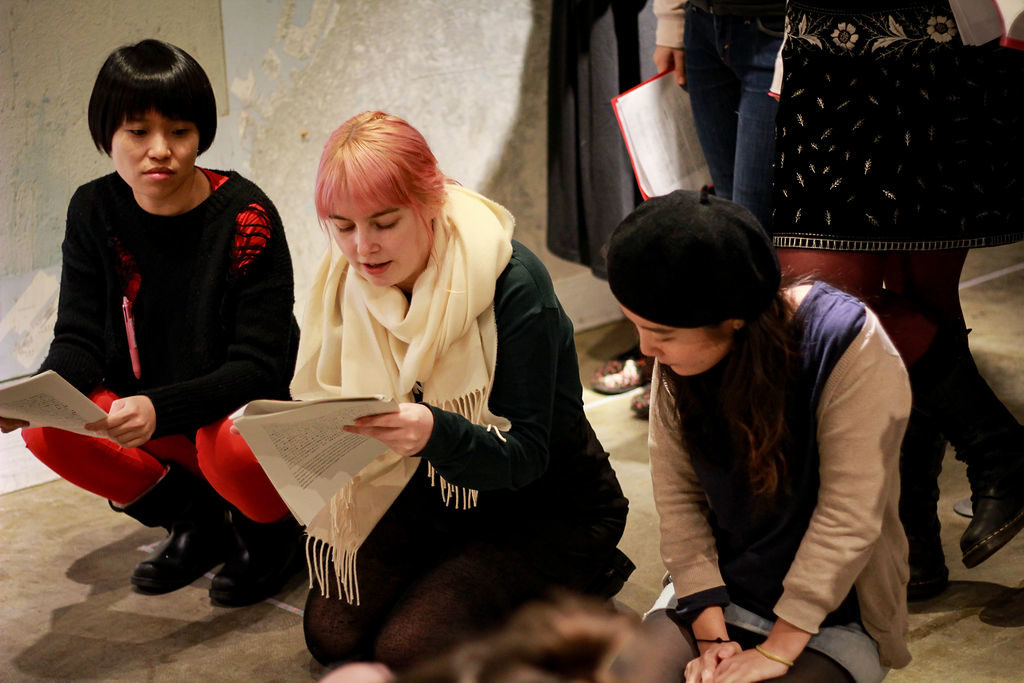 © Photo by Ayana Wyse
© Photo by Ayana WyseDuring rehearsal for the upcoming 2019 play on February 24.
Here’s how The Vagina Monologues came to be in Osaka, told by the people who made it happen.
Margo Brennan, founder and organizer
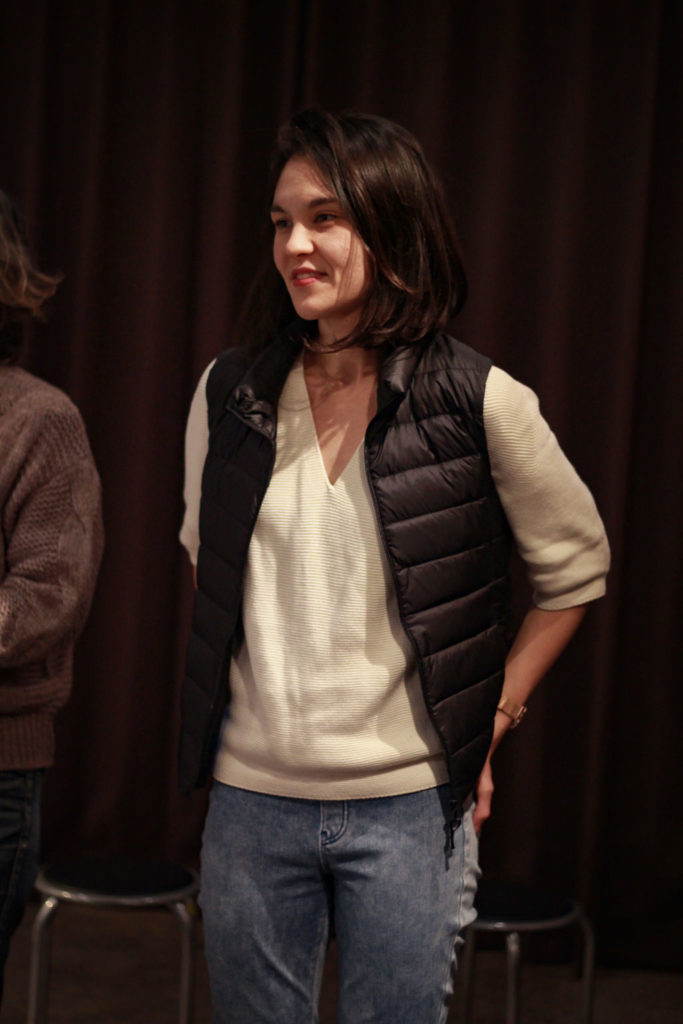 © Photo by Ayana Wyse
© Photo by Ayana Wyse
“In the fall of 2016, six amazing women and myself started V-Day Osaka. In the face of a world that is often unjust and unkind, I think we all felt the pull to come together to do our little part to change that trajectory. In addition, we felt Osaka needed a community in which women and our allies could come together for inspiration and empowerment. Although the logistics of organizing The Vagina Monologues were challenging and stressful at times (starting from scratch, language barriers, getting 22 cast members together to rehearse!!), on so many occasions, a Vagina Goddess from above shined down upon us, and things fell perfectly into place. One of the most inspiring and moving aspects of putting on the performance was the incredible amount of community support we received. It seemed everyone we talked to was on board with our mission and wanted to help out in some way. Three years later, V-Day Osaka has blossomed into an incredible community, connecting more and more each day.
Today, all proceeds made from a production of The Vagina Monologues go to a charity fighting against such injustice.
“The Vagina Monologues and the purpose behind V-Day are very much relevant to Japan. Japan currently faces a huge domestic violence (DV) issue. According to a Gender Equality Bureau Office Survey, in 2015, 1 in 4 women in Japan were subjected to abuse by their spouse. The majority of these cases went unreported. Violence against women and girls is a prevalent and ongoing issue. In putting on TVM, our aim is to not only raise money, but to also raise awareness, and empower people in our community to stand up and fight back.”
Katee Brough, co-founder
“I remember getting a text from Margo talking about this amazing book she had read and asked me if I thought the project was possible. I replied that not only was it possible, but that I thought it was important. It took a combination of courage and blind faith to get it off the ground. I had experience planning charitable events and doing feminist activism, but I had never put on a play before, let alone done any of this kind of thing in Japan.
“I had been reading about feminism in Japan, about different issues of gender equality and violence towards women. They’re hard topics to talk about, especially in a society that doesn’t like people who make waves. We did some research and found Ikuno Gakuen. The organization’s history and mission were so inspiring. When we reached out, they were excited about partnering up with us.
The Vagina Monologues and the purpose behind V-Day are very much relevant to Japan.
“We found an amazing team, people who had experience acting, people who had experience event planning, people who didn’t have much-related experience but who were passionate about being involved. It was so serendipitous, I couldn’t have imagined the success we encountered in my wildest dreams. It’s one of my proudest accomplishments to date and something I’m honored to say I had a part in starting.”
Brooke Larsen (me!), co-founder and 2019 co-director
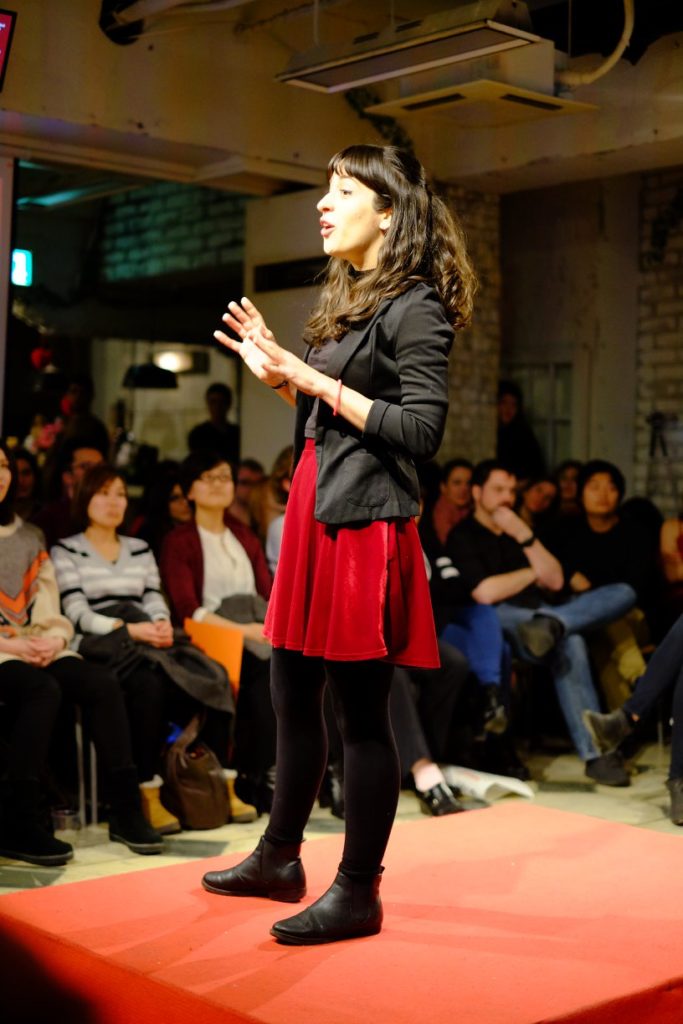 © Photo by V-Day Osaka
© Photo by V-Day Osaka
“The only reason Margo and Katee asked me to join is because I have a lot of friends who I could spread the word to. I wouldn’t brag about this if it weren’t my only skill. I can’t sing or even hold a tune, basic math makes me sweat, and I’d rather leap out a high window than DIY anything. But I like people and they seem to like me back. I also have a background in improv and stand up, so I guess that helped. Being on stage is pretty easy for me. Directing, though, that’s another challenge.”
Mariam Finneran, 2019 co-director
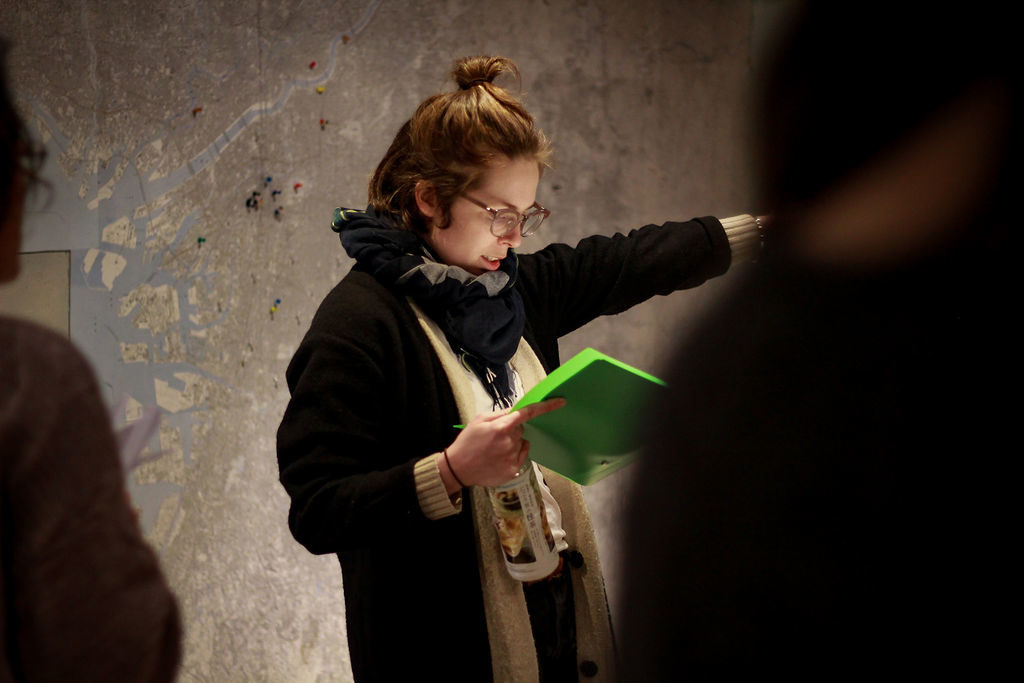 © Photo by Ayana Wyse
© Photo by Ayana Wyse
“I half-heartedly signed up to do The Vagina Monologues when the first show happened three years ago thinking that it would be a cool thing to do one time—and one time only—and now I find myself not just performing in but co-directing on round three. I somehow forget how much work it is every year, then get oddly resentful of it all during rehearsal time but it’s always worth it at the performance. Maybe that’s how I forget so easily? Co-directing means I can’t skip rehearsals whenever I’d rather be eating pasta in bed (that’s most Sunday nights honestly) but it’s been an amazing challenge and I’m glad I took it on in spite of the extra workload. I can’t wait for the performance, and maybe next year I’ll actually manage to sit it out and watch it as an audience member for once.”
Yoshiko “YoYo” Ueda, co-founder and organizer
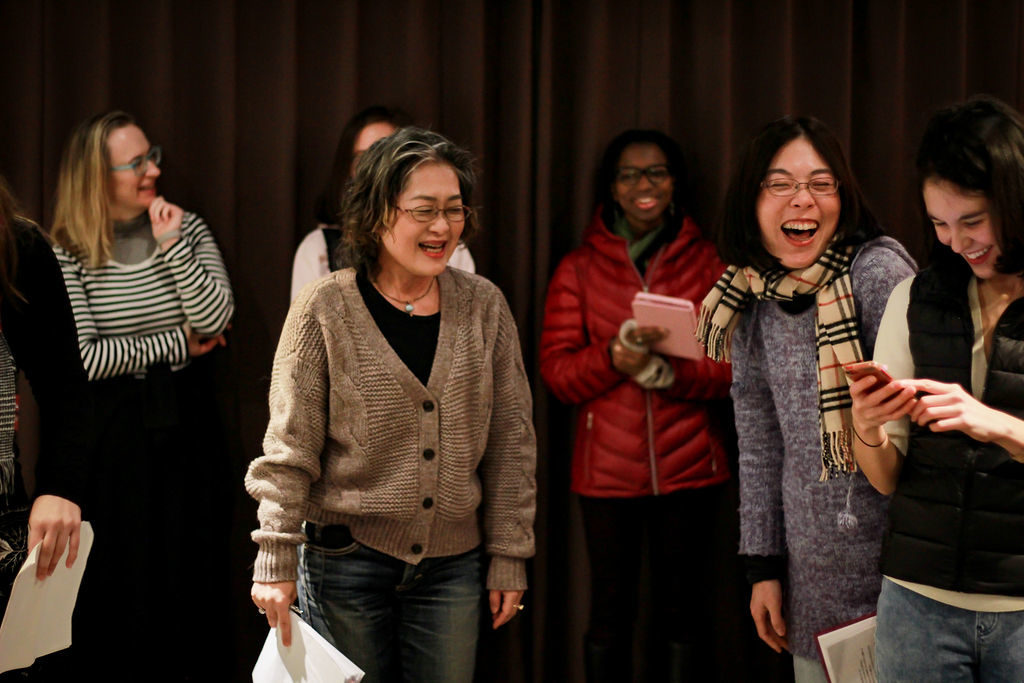 © Photo by Ayana Wyse
© Photo by Ayana WyseYoYo (left) with other participants during a rehearsal for the upcoming The Vagina Monologues play in Osaka, Japan.
“I didn’t know about The Vagina Monologues at all when I read the e-mail inviting me to join the group, I was just interested in acting in both English and Japanese. I was surprised to learn the contents. More surprisingly, other ladies at the call for actors seemed very familiar with the show. They were from abroad, places like America and Europe. But few of my Japanese friends knew it except some theater people.
“Sometimes the content made people embarrassed—we were even once rejected to use a venue because it was too sexy. But some were very open to it. Researching the show to better understand our cause, telling me they had a chat about it even I wasn’t there—some of my old friends were raising a topic that we had never talked about before. The Vagina Monologues (TVM) is a good starter to notice matters we are ignoring.
“We still see many sad issues like DV, sexual harassment, and violation of one’s rights all over Japan. Seeing TVM might not be the most drastic solution, but I personally like the way we are bringing those issues up. We can do something. We can rise together. We can change the paradigm. And we suggest many ways to do so. It makes people feel positive, I hope. If people think it interesting or fun, they naturally spread it. That is where we get the energy to change things for the better I believe.”
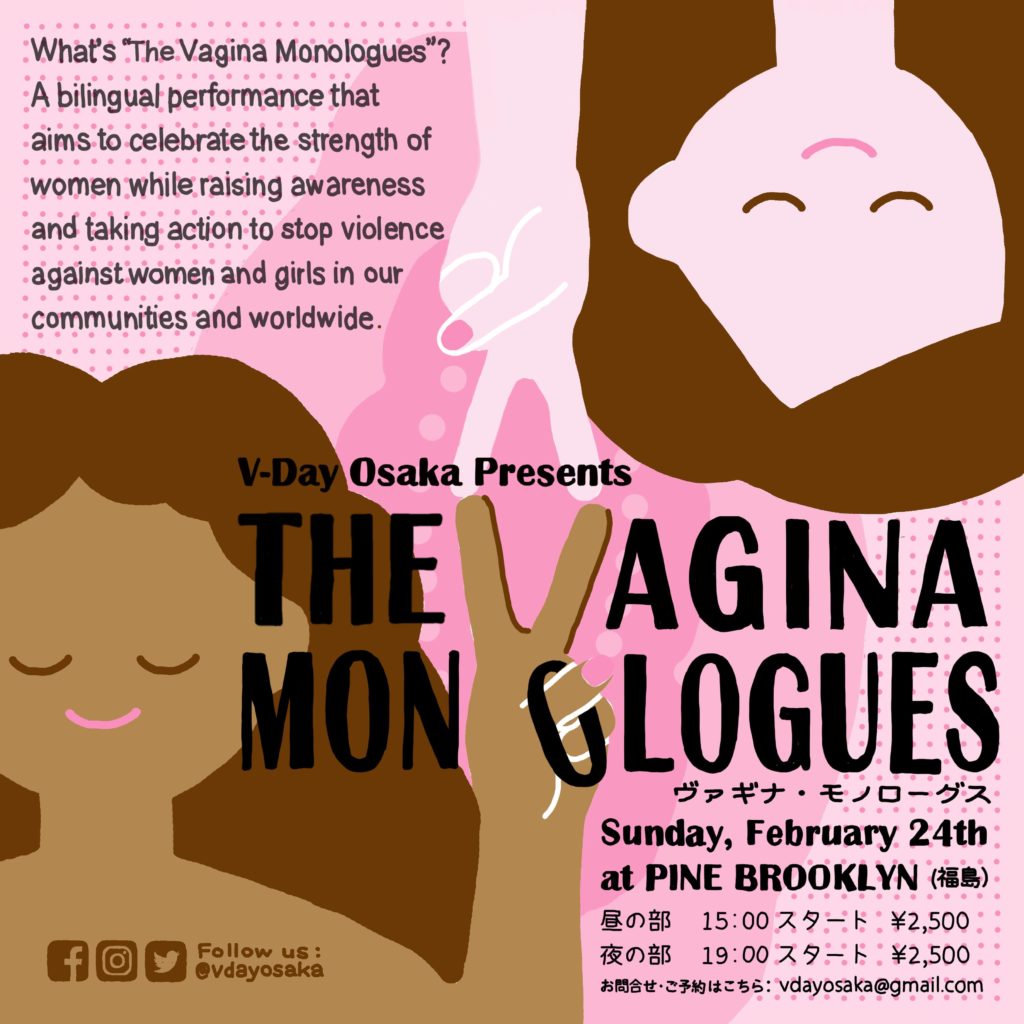 © Photo by stainperfect
© Photo by stainperfect
This year’s performance is on Sunday, Feb. 24 at Pine Brooklyn in Osaka. See details here. To reserve tickets, email vdayosaka@gmail.com.
If you’d like to stage a V-Day performance of your own, visit vday.org.












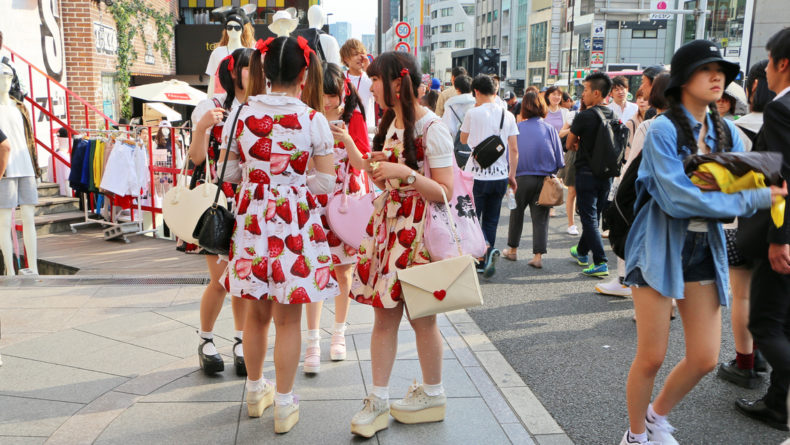

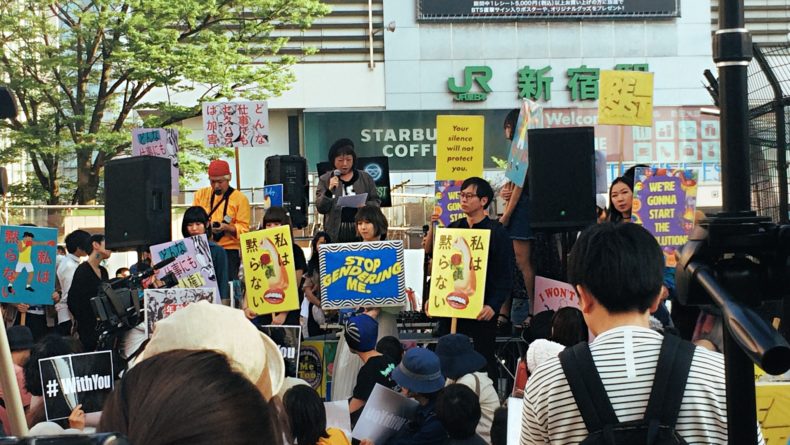

Leave a Reply